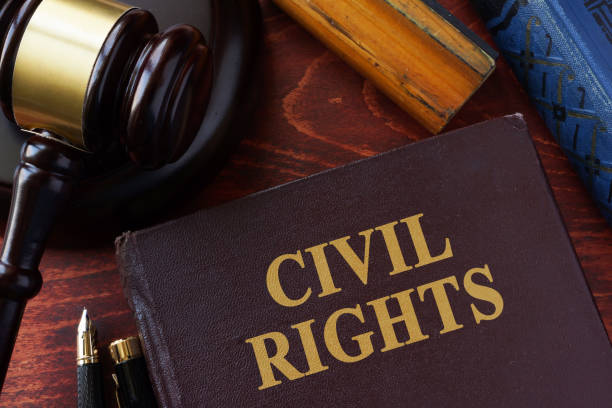CHICAGO, IL – In a city as vibrant and diverse as Chicago, where people from all walks of life come together, civil rights protections are crucial in ensuring that everyone is treated fairly and justly. However, despite these protections, unlawful discrimination and civil rights violations continue to occur. Understanding how to recognize and challenge these violations is essential for anyone who believes their rights have been infringed upon. In this blog, we’ll explore how to identify civil rights violations and what steps you can take to address them.
Understanding Civil Rights Violations
Civil rights are fundamental rights guaranteed to every individual, encompassing protections against unfair treatment based on race, color, religion, sex, national origin, disability and more. These rights are enshrined in various federal and state laws, including the Civil Rights Act of 1964, the Fair Housing Act and the Americans with Disabilities Act, among others. When an individual or institution infringes upon these rights, it constitutes a civil rights violation.
Recognizing a civil rights violation involves understanding the context in which discrimination occurs. Such violations can manifest in various settings, including employment, housing, education, and interactions with law enforcement. For instance, if you’re denied a job opportunity based on your race or religion, or if you’re treated unfairly in housing because of your sexual orientation, these are examples of unlawful discrimination. The core issue in these situations is that the discriminatory act is based on an individual’s protected characteristics, rather than merit or qualifications.
Identifying Unlawful Discrimination
Identifying unlawful discrimination can be challenging, particularly when it is subtle or systemic. Discrimination may not always be overt; it can be embedded in policies, practices or cultural norms that disadvantage certain groups. For example, a company may have a seemingly neutral hiring practice that disproportionately affects minority candidates. While the practice itself might not explicitly mention race, its impact could still be discriminatory.
One key indicator of discrimination is a pattern of behavior or treatment that consistently disadvantages a particular group. If you notice that certain groups are routinely subjected to harsher treatment or are denied opportunities more frequently than others, this could suggest systemic discrimination. For instance, if a landlord regularly denies rental applications from individuals with disabilities despite their qualifications, this pattern might indicate a civil rights violation.
Another important aspect to consider is whether the discriminatory behavior is a result of a failure to accommodate or adjust practices to meet the needs of protected individuals. For example, if a workplace fails to provide reasonable accommodations for an employee with a disability, this could be a violation of civil rights. Similarly, if an educational institution does not provide necessary support services for students with disabilities, this may also constitute discrimination.
Challenging Unlawful Discrimination
Once you recognize that you may have experienced a civil rights violation, the next step is to challenge the unlawful discrimination. This process often begins with gathering evidence to support your claim. Documenting incidents of discrimination, such as keeping records of discriminatory comments, actions, or decisions, is crucial. This evidence can include emails, performance reviews, witness statements, and any other relevant documentation.
It’s also important to file a formal complaint with the relevant authorities. In the case of employment discrimination, you may need to file a charge with the Equal Employment Opportunity Commission (EEOC). For housing discrimination, the Fair Housing and Equal Opportunity office handles such complaints. These agencies investigate allegations and can provide mediation or legal action if necessary.
Legal action is a critical option for addressing severe cases of discrimination. Consulting with an experienced civil rights attorney is essential in navigating this process. Our team of skilled attorney’s can help you understand your rights, evaluate the strength of your case and represent you in legal proceedings. We can also assist in negotiating settlements or taking your case to court if a fair resolution cannot be reached through mediation.
Taking Action in Chicago
In Chicago, there are local resources available to assist individuals facing civil rights violations. The Chicago Commission on Human Relations investigates complaints of discrimination in employment, housing and public accommodations. They provide a platform for filing complaints and seeking resolutions at the city level.
For those who feel their civil rights have been violated, the legal landscape in Illinois provides various avenues for seeking justice. Whether you’re facing discrimination in the workplace, in housing, or through interactions with law enforcement, understanding your rights and the legal remedies available is crucial.
Contact a Civil Rights Lawyer in Illinois
Civil rights violations undermine the principles of fairness and equality that are fundamental to our society. Recognizing and challenging unlawful discrimination is essential for protecting your rights and ensuring justice. If you believe you have experienced a civil rights violation in Chicago, consulting with a knowledgeable attorney can help you navigate the complexities of the legal system and seek the redress you deserve.
Our legal team is dedicated to advocating for those whose civil rights have been infringed upon. If you’ve encountered discrimination and need guidance, don’t hesitate to reach out to us at (312) 384-1920. We are here to help you understand your rights and take the necessary steps to hold those responsible accountable.



